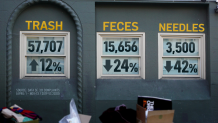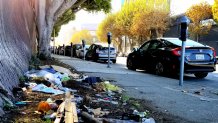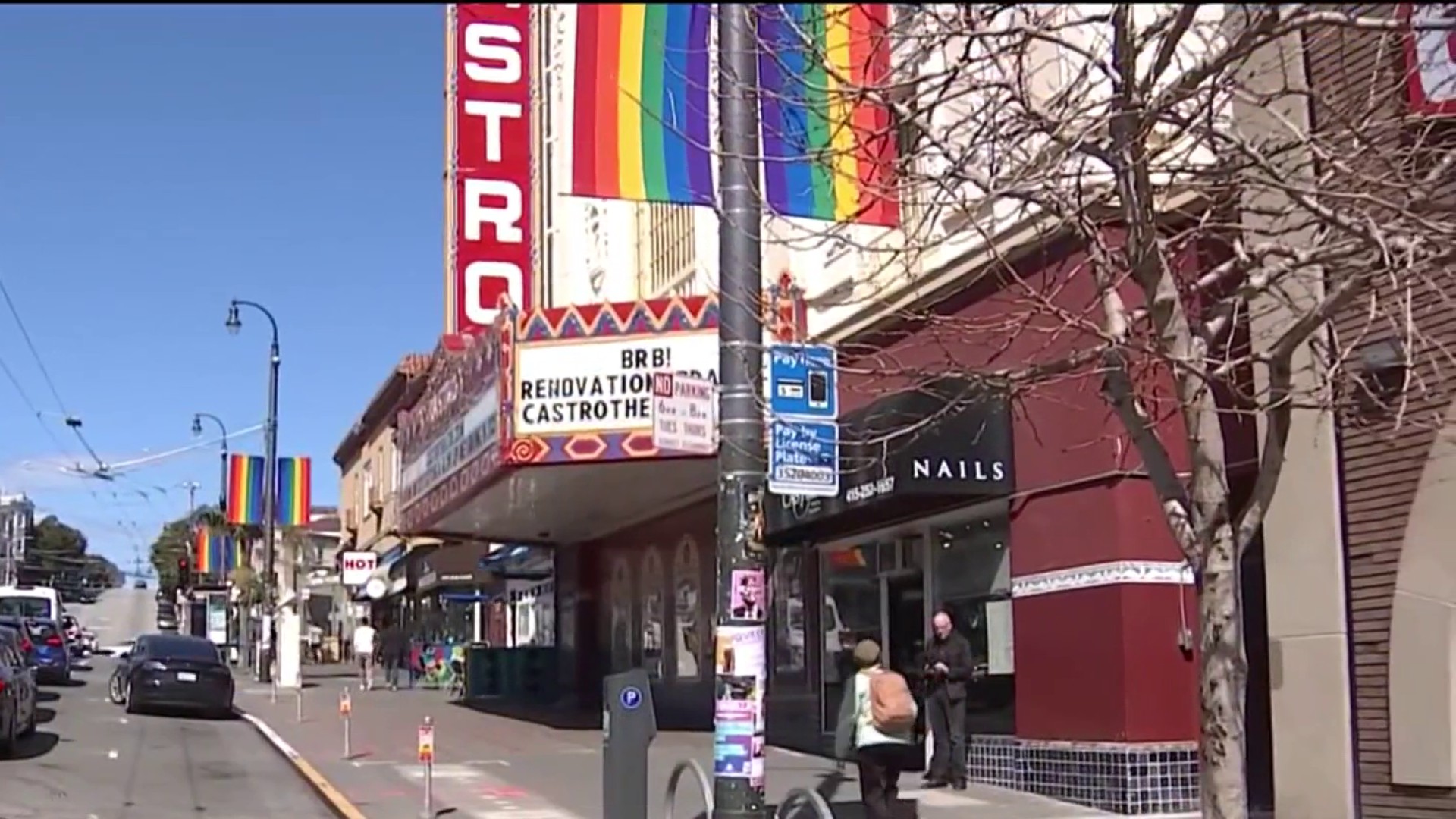The NBC Bay Area Investigative Unit analyzed 311 complaint data from April 1 to Nov. 13 and compared it to the same time period in previous years to gain insight into how the global health emergency may be impacting the cleanliness of San Francisco's infamously dirty streets.
The data shows more calls for help to clear trash from San Francisco streets than in the previous year, but fewer concerns about feces and needles. The changes come as stay-at-home orders have reduced the total number of people on the streets, coupled with a migration out of the city by renters. In addition, ongoing services provided to the homeless may also play a role in the decreasing number of complaints, according to city officials.
City-wide Complaints Shed Light on Street Conditions During Pandemic
From April 1 to Nov.1, 2020, San Francisco logged 15,656 feces complaints, which represents a 24% decline from last year. In fact, the city's grievances about human or animal waste are now at the lowest level in three years. The last time San Francisco received fewer complaints was in 2017, when the city tallied 13,592 feces complaints. Complaints concerning used syringes have also declined during the pandemic, falling 24%. Trash complaints, however, increased 12% during the same 8-month time period.

Nearly 5% of Renters Have Moved Out of San Francisco Since April
Recent statistics also show renters leaving San Francisco at an increasing rate during the pandemic. About 4.8 percent of apartment renters have moved out of the city since April, according to data provided to the Investigative Unit by CoStar, a commercial real estate data provider which also owns Apartments.com. Of San Francisco's "pre-pandemic peak" of 103,000 occupied market-rate apartments, about 5,000 apartments have been vacated since lock-down orders first went into effect across the San Francisco Bay Area, according to CoStar. The exodus, coupled with shelter-in-place orders, means fewer people are using streets and sidewalks.
Local
New Homeless Services Emerge Amid Pandemic
“The rollout of 15 new pitstop toilets last April may have something to do with the decrease,” said Dan Goncher, the Budget Legislative Analyst who has audited the city’s street cleaning budget and in past years noted a lack of improvement in street cleanliness even as the street cleaning budget doubled. “Some of those pitstops include a needle depository,” said Goncher, which may account for the decrease in complaints about used syringes on the street.
Goncher also noted that many homeless people have been housed in hotels during the pandemic. The measure, intended to reduce the spread of COVID-19 in the homeless population, may also have curbed drug use on the streets.

Viral Investigation on San Francisco's 'Diseased Streets'
In February 2018, the Investigative Unit surveyed 153 blocks in downtown San Francisco and exposed a dangerous mix of drug needles, garbage, and human waste. Infectious disease experts compared the city to some of the dirtiest slums in the world. Dr. Lee Riley of UC Berkeley noted the contamination -- particularly from discarded needles -- could cause HIV, Hepatitis C, Hepatitis B, and a variety of other viral diseases. The investigation also exposed questionable spending inside Public Works, the city department in charge of street cleaning. Since then, Mohammed Nuru, the head of that agency, has been charged with corruption. Nuru remains at the center of an F.B.I. probe. He resigned as public works director shortly after his arrest.
San Francisco Voters Overhaul City's Street Cleaning Program
During the Nov. 3 election, San Francisco voted overwhelmingly for the creation of a new Department of Sanitation and Streets. The new department would take over many of the duties currently assigned to Public Works, including cleaning streets and sidewalks, maintaining trash cans, removing graffiti and illegally dumped waste, as well as maintaining restrooms and street trees. The measure will also create two separate five-member commissions: one to oversee the new Sanitation Department and another to oversee Public Works. The new department, however, will not be established until the 2022-2023 budget year.
The City Controller’s office estimates the new Sanitation department will cost between $2.5 and $6 million.
“The measure was written to have no fiscal impact in the next two budget years, due to concerns about COVID related revenue losses," said District 6 Supervisor Matt Haney, the author of the proposal. “We do have to think outside the box."



